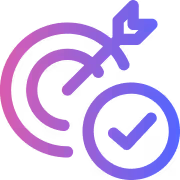Pros and Cons of an Idaho Gambling License
Advantages
Getting a gambling license in Idaho helps organizations comply with the law, avoid penalties, and gain trust with donors and participants. The state offers a tiered fee structure starting at just $100 for organizations earning under $25,000, making it affordable for smaller groups [1]. Plus, the Idaho Lottery processes applications quickly - usually within 15 calendar days [2] - so organizations can start their activities faster compared to other states.
That said, there are challenges tied to Idaho's licensing system that organizations need to consider.
Disadvantages
One of the biggest drawbacks is the limited scope of allowed activities. Licensed groups are restricted to specific operations like bingo and charitable raffles [2].
There are also operational hurdles, including annual background checks, maintaining separate accounts, compliance reviews, and a 30-day renewal process. For organizations earning over $75,000, the requirements become even stricter, with detailed financial reporting needed [5].
Another challenge is the requirement for a continuous local presence. Organizations must prove they've been active for at least one year in the county where they plan to operate gambling activities [3]. This rule can make it harder to expand or operate in new areas.
Lastly, staying compliant with Idaho Code and Administrative Rules is non-negotiable. Failing to do so could lead to legal trouble. Organizations need to weigh these factors to decide if pursuing a license aligns with their goals and resources.
Application Process Steps
Application Preparation and Submission
To apply for an Idaho gambling license, your organization must qualify as a tax-exempt charitable or non-profit entity. Gather the necessary documents, such as application forms, tax-exempt certification, proof of non-profit status, and background check forms [1][3].
Submit the completed application packet along with a $100 application fee to the Idaho Lottery Enforcement Division. The annual license fee depends on your organization's revenue:
| Revenue Range |
License Fee |
| Under $25,000 |
$100 |
| $25,000 - $75,000 |
$200 |
| Over $75,000 |
$300 |
Background Checks
The Idaho Lottery requires annual background checks for key personnel, including:
- The organization’s president or chairman
- Treasurer (CFO)
- Individuals involved in fundraising activities [3]
These checks are designed to uphold transparency and accountability in gambling operations.
Approval Steps
The Idaho Lottery reviews applications within 15 calendar days [2]. To avoid delays, make sure to:
- Verify all submitted documents for accuracy
- Follow Idaho Code Title 67, Chapter 77
- Respond promptly to any requests for additional information
For help during the process, you can reach out to the Idaho Lottery Enforcement Division.
Keep in mind that licenses are valid for one year. To prevent disruptions, submit your renewal application at least 30 days before the expiration date [3]. After approval, organizations must continue adhering to regulations to ensure smooth operations and prepare for future renewals.
B2C and B2B Licenses in Idaho
Idaho provides two main types of licenses for the gambling industry: Business-to-Consumer (B2C) and Business-to-Business (B2B) licenses. Each serves a specific purpose and caters to different operational needs.
B2C Licenses
B2C licenses are for organizations that offer gambling services directly to the public. These licenses primarily cover charitable gaming activities such as bingo halls and raffle operators. To stay compliant, license holders must follow the regulations outlined in Idaho Code Title 67, Chapter 77. Key requirements include:
- Submitting regular financial reports to ensure transparency
- Implementing measures to promote responsible gambling
- Keeping detailed records of all gaming activities
- Operating under the supervision of the Idaho State Lottery
B2B Licenses
B2B licenses are for companies that provide critical infrastructure and services to the gambling industry. These businesses typically specialize in areas such as:
- Gaming software and platform development
- Payment processing solutions
- Supplying and maintaining gaming equipment
- Testing and certification services
- Risk management and security solutions
Both B2C and B2B license holders must adhere to the rules established under IDAPA 52.01.03. The Idaho Lottery Enforcement Division regularly conducts audits and compliance checks, offering guidance and support during the application process. Maintaining communication with the Charitable Gaming Coordinator is essential to ensure compliance and smooth operations.
For both license types, compliance is key to securing renewals and avoiding operational disruptions.
License Renewal
Renewal Schedule
Idaho gambling licenses need to be renewed every year, with each license expiring exactly one year from its issue date. To avoid a $50 late fee, renewal applications must be submitted no later than 30 days before the expiration date. Make sure to have all required renewal documents ready in advance.
Documents for Renewal
To complete your renewal, you'll need to provide the following:
- Charitable Gaming Renewal Application form
- Charity and/or Non-Profit to Receive Funds form
- Background checks for key personnel, just like in the initial application
- Payment for the license fee, calculated based on last year's revenue
The license fee is determined by your organization's gross revenue from bingo and raffle activities:
| Annual Gross Revenue |
License Fee |
| Less than $25,000 |
$100 |
| $25,000 to $75,000 |
$200 |
| Over $75,000 |
$300 |
If your organization is tax-exempt, you'll also need to include:
- A copy of your IRS tax-exempt status letter and current bylaws or articles of incorporation
- Meeting minutes from the last 12 months
- Detailed reports on your fundraising activities
Audits During Renewal
The Idaho Lottery Enforcement Division will review your compliance as part of the renewal process. These audits focus on:
- Accuracy of your financial records
- Adherence to Idaho's gambling regulations
- Evaluation of your operational procedures
These checks ensure organizations are meeting state standards and maintaining public trust.
Send completed renewal applications to the Idaho Lottery Charitable Gaming Coordinator at the following address:
Idaho Lottery
Attn: Charitable Gaming Coordinator
P.O. Box 6537
Boise, ID 83707
























.avif)
.avif)
.avif)
.avif)
.avif)
.avif)
.avif)
.avif)
.avif)
.avif)
.avif)
.avif)










































.avif)
.avif)
.avif)
.avif)
.avif)
.avif)
.avif)
.avif)
.avif)
.avif)
.avif)
.avif)
